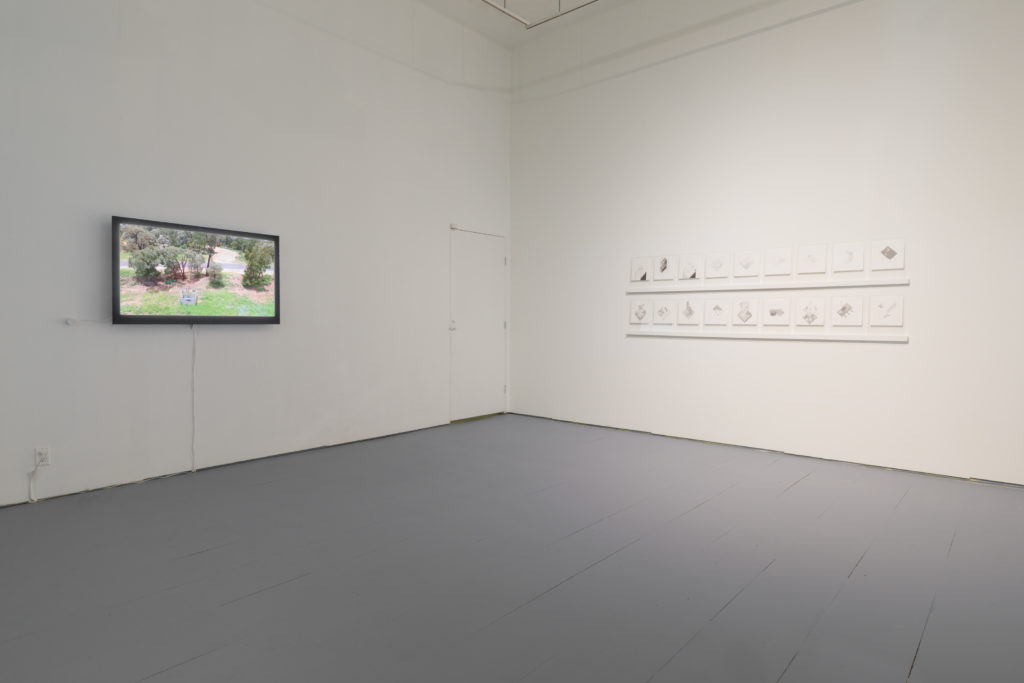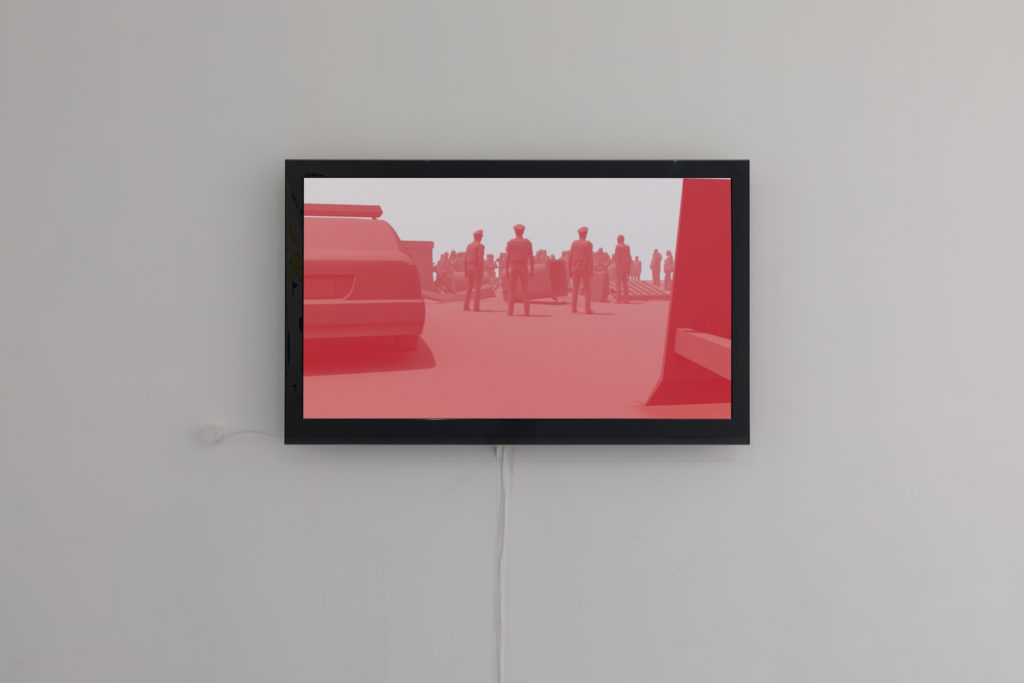A multi-disciplinary project using poetry, collaborative drawings, installation, moving images, and lectures to unpack the broader significance of ‘settler conceptualism’, the racial logic of the property form and fossil fuel-based labour politics as capital reaches the limits of land use. In ongoing dialogue with elders of Gooreng Gooreng country and settler women activists, where fracking was approved for mass installation in ‘Australia’, new elements of this work address the threatened destruction to 50% of the Northern Territory.
Rachel O’Reilly links international conceptualism’s hierarchy of the document over the object to the global implementation of registry-based land title acts that bypass Indigenous and settler relationships to land, and the various ecosystems on, above and below the surface of ‘property.’
O’Reilly, an Australian of settler-heritage, focuses on the detriment caused by colonial conceptions of land-relations and value in combination with the proliferation of mining and drilling-sites, and the influence of extractive industries. Specifically she examines the ‘Torrens Title,’ a land registry system introduced by the British and first instituted in Australia (1858) then Western Canada (1861) and Canada’s Northwest Territories (1886) followed by other regions including the Philippines, Ireland and Malaysia.
O’Reilly’s The Gas Imaginary (2013-2019) has used poetry, collaborative drawings, installation, moving images and lecture-formats to unpack the broader significance of ‘settler conceptualism,’ the racial logic of the property form and fossil fuel-based labour politics as capital exhausts the limits of land use.
In ongoing dialogue with elders of Gooreng Gooreng country and settler women activists, where shale gas fracking was approved for mass installation in ‘Australia,’ the final element of this project, INFRACTIONS, addresses the threatened destruction to 50% of the Northern Territory.
INFRACTIONS features musician/community leader Dimakarri ‘Ray’ Dixon (Mudburra); two-time Telstra Award finalist Jack Green, also winner of the the 2015 Peter Rawlinson Conservation Award (Garawa, Gudanji); musician/community leader Gadrian Hoosan (Garrwa, Yanyuwa); ranger Robert O’Keefe (Wambaya), educators Juliri Ingra and Neola Savage (Gooreng Gooreng); Ntaria community worker and law student Que Kenny (Western Arrarnta); musician Cassie Williams (Western Arrarnta); the Sandridge Band from Borroloola; and Professor Irene Watson (Tanganekald, Meintangk Bunganditj) contributor to the draft UN Declaration on the Rights of Indigenous Peoples, 1990-1994.
Rachel O’Reilly is an artist, writer/poet, curator and PhD researcher at Goldsmiths’ Centre for Research Architecture. She teaches the theory seminar ‘At the Limits of the Writerly’ on planetarity, political economy and poetics at the Dutch Art Institute. She was previously a curator at the Australian Cinematheque at the Gallery of Modern Art | Australian Cinematheque, Brisbane, and researcher at the Jan van Eyck Academy.
Her artistic work and research have been presented internationally, most recently at Van Abbemuseum, Eindhoven; E-flux, New York; and UNSW Galleries, Sydney. Recent curatorial collaborations include Ex-Embassy with Sonja Hornung and Planetary Records: Performing Justice between Art and Law with Natasha Ginwala. She co-wrote On Neutrality with Jelena Vesic and Vlidi Jeric for the Non-Aligned Modernisms series (MCA, Belgrade), publishes with Danny Butt on artistic autonomy in settler colonial space, and currently coedits Feminist Takes on Black Wave Film with Antonia Majaca and Jelena Vesic for Sternberg Press.
The Or Gallery operates principally in Vancouver, a city situated on the unceded territory of the xwməθkwəy̓əm (Musqueam), Skwxwú7mesh (Squamish) and Səl̓ílwətaʔ/Selilwitulh (Tsleil-Waututh) First Nations.






